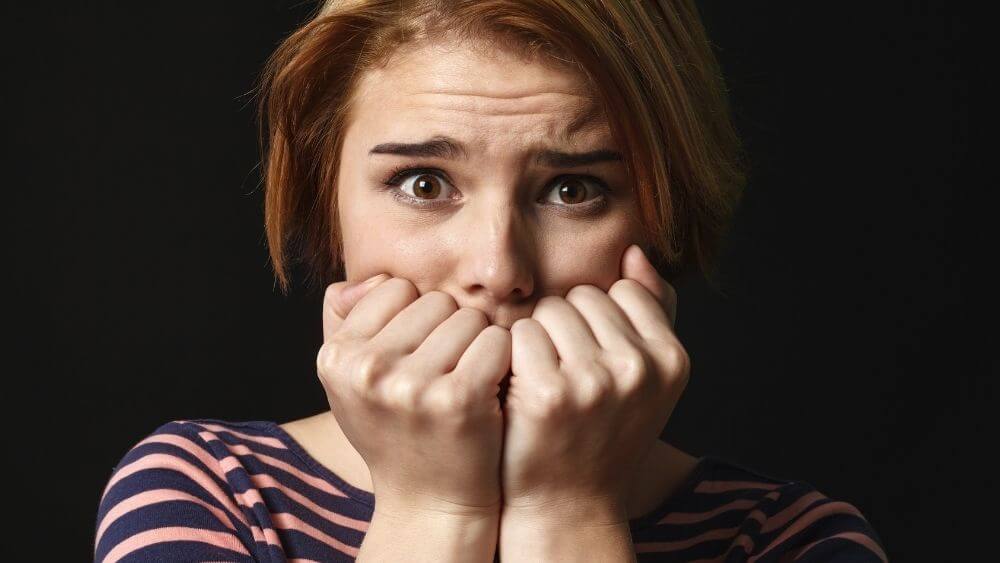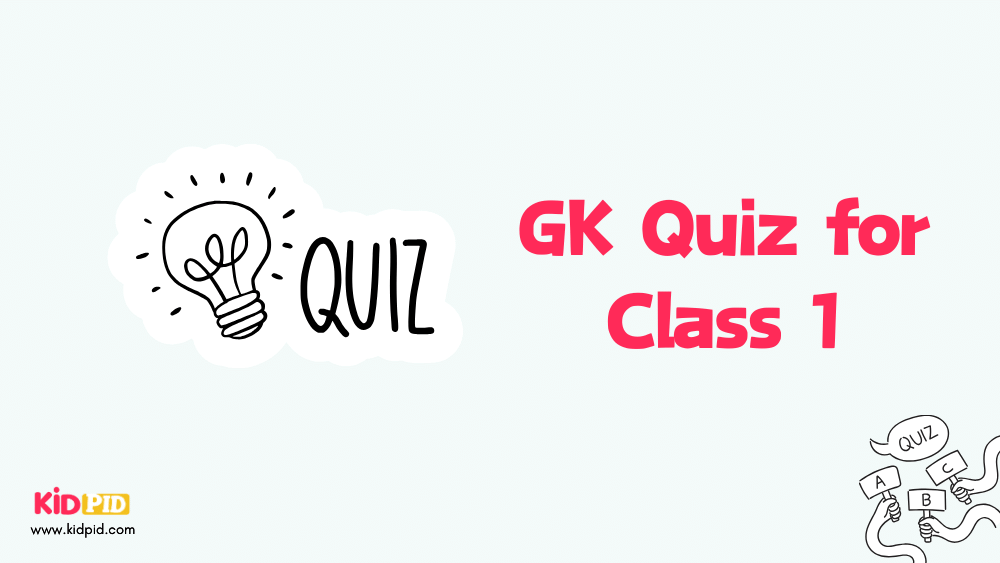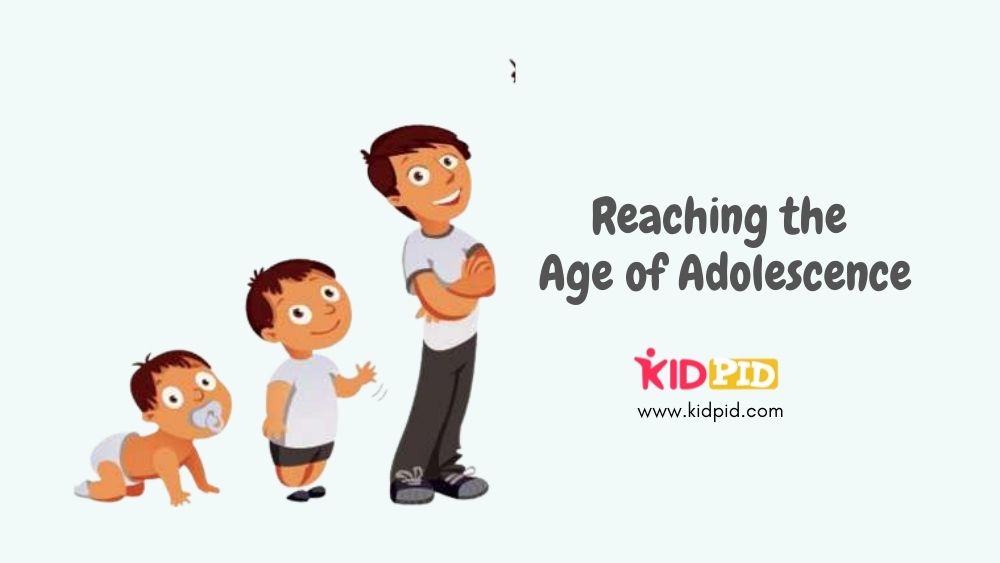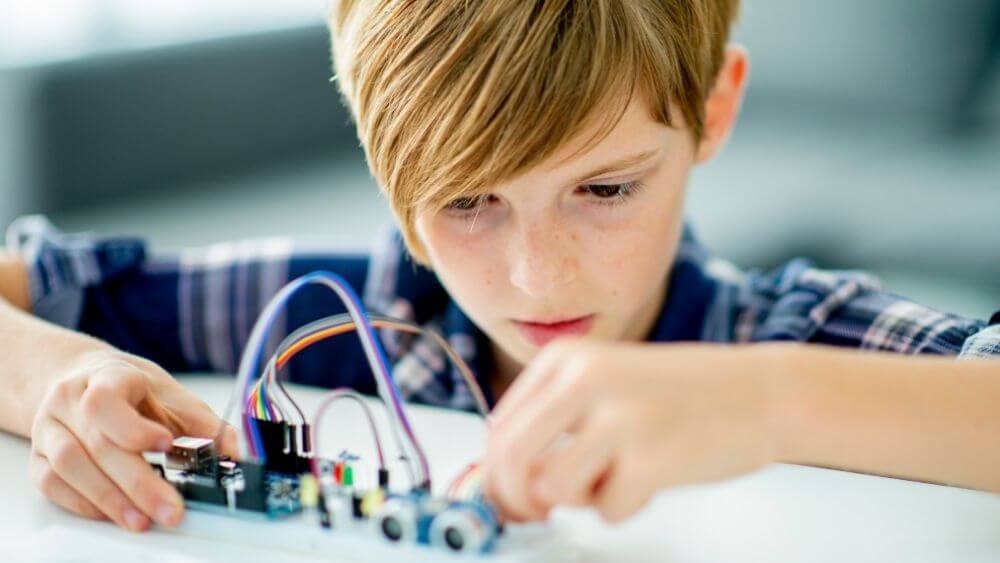What happens when I’m scared?

DECODING EMOTIONS!
Do you remember the last time you got a chill down your spine while watching a horror film? Do you get scared and uncomfortable in the dark? Do you get easily scared of things that might look unusual to you?
Well, fear is an emotion each and every one of us deals with in some part of our life. However, depending upon the individual, the degree of being scared varies largely. So while some person may have a strong heart and not get scared easily, others however might be equally weak-hearted and even the slightest incidence may startle them completely.
So, have you ever wondered what actually happens when we get scared? Apart from experiencing the emotion, what happens inside our body during such times?
Read on to know more!
Contents
Fear
Just like every other emotion, fear too is inside us right from the beginning of our lives. While any emotion is complex to define, but to put it simply, fear is the direct response/reaction mechanism of our body when it perceives danger, and thereafter alarms the mind to act in a way to protect itself from danger.
It is more like a survival instinct of our body, to any circumstance appearing dangerous or unsafe to us. At all stages of life, humans experience some form of fear, be it the fear of something physical or tangible or, the fear of failure. For instance, in the case of an infant, the most obvious response to them feeling insecure or scared or uncomfortable at a certain point of time is through crying.
Body’s Reaction To Danger
The entire sensory system of the human body is a key player in identifying any impending danger. The brain identifies the danger by receiving information from the sensory organs about it, in the form of electrical signals through the nerve cells. It then sends out other electrical signals throughout the body, as a result of which chemicals in the body react and are released as hormones.
It is these very hormones that change and prepare the way for our body to work under stress. Thereafter, the adrenal glands begin to release a hormone called epinephrine into the bloodstream, which then alerts the body to decide either to fight the danger or simply or run away from it.
What happens when I’m scared?
When an individual is frightened, the body responds immediately by getting ready to either face the danger or run away from it. This response mechanism is known as the ‘fight or flight’ response. As we have noted above, the brain sends signals throughout the body alerting it to be prepared.
This signal alert however is perceived differently in different parts of the body.
Pupils Of The Eye Are Dilated
The dark central portion of the eye(the eyeball) gets bigger in size so as to ensure more light enters the eye. It enables the individual to see better and clearer, the danger around them and decide whether to plan an escape or fight it off.
Sweaty Palms
The body temperature usually rises in such situations, which makes the body sweat more in order to cool down. Hence the areas of the body where the maximum sweat glands are present (such as the armpits, hands, palms, etc. ) begin to sweat excessively.
Heart Beat Increases
The most commonly used phrase in such times is that ‘our heart begins to race’. Indeed it does so, with the heart beginning to beat faster, the body experiences a rapid need to breathe. The oxygen and blood reach the arms and legs for a quick escape if needed.
Bladder Empties
In such situations, it is possible that a person may wet themselves when they are scared. This happens because the muscle controlling the urinary bladder relaxes, in order to facilitate other necessary receptive functions to take place in the body at that time.
Digestion Slows Down
The digestive process may halt in the stomach and so the digested food moving throughout the body slows down. Blood is sent to other areas of the body needed for fighting or running away.
Fun Facts
- There are some types of fear (such as the fear from certain objects) that is common to most cultures!
- In times of fear, the blood vessels in the brain expand so that the nutrients in the blood can help it to work faster.
Related questions
Some related questions to this topic.
- What causes panic in times of fear?
- What can be the typical causes of fear?
- What are some physical reactions to fear?
Objective Quiz
Here are some questions you’d like to answer to test your knowledge.
The chemical hormone released by the body when in fear:
- Adrenaline
- Insulin
- Epinephrine
Our palms sweat when in danger because of:
- Sweat glands present in there
- Rubbing our palms often
- Instant allergic reaction
The immediate response of the body when facing danger is:
- Escape reaction
- Action reaction
- Fight or flight reaction
An infant’s reaction to fear is:
- Crying
- Hysteria
- Fainting
The vital organ system(s) of the body which alerts us completely in times of fear and impending danger:
- Nervous system
- Sensory system
- Respiratory system
True Or False
- Fear is common to all human beings. (True/False)
- Sweating when in gear is uncommon. (True/False)
- Epinephrine is a response hormone of the body when facing fear. (True/False)
- Heartbeat slows down when we are frightened. (True/False)
- Pupils are dilated when we are scared. (True/False)






Responses